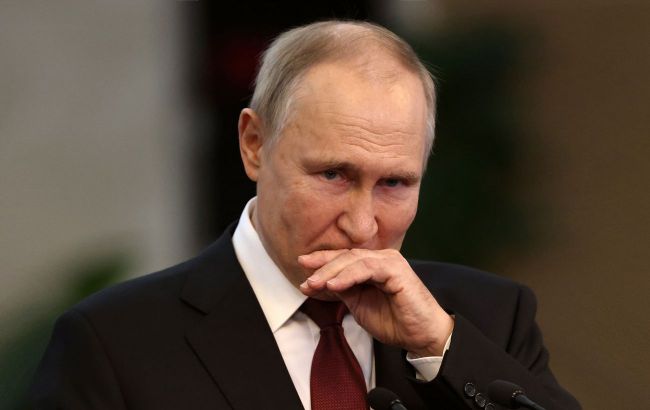Putin does not rule out possibility of announcing another wave of mobilization - ISW
 Russian President Vladimir Putin (photo: Getty Images)
Russian President Vladimir Putin (photo: Getty Images)
Russian President Vladimir Putin is unlikely to announce a new wave of mobilization in Russia. However, he has not ruled out the possibility, reports the American Institute for the Study of War (ISW).
Analysts reached this conclusion based on recent statements by Kyrylo Budanov, Chief of the Defense Intelligence of Ukraine, Major General. Budanov remarked that Russia aims to conclude the war with a victory by early 2026 at the latest.
More details on what Budanov said
On Sunday, September 15, Budanov stated at the 20th Annual Meeting of Yalta European Strategy (YES) in Kyiv that the Kremlin views 2025 as a turning point. According to him, failing to secure a victory in Ukraine by early 2026 will undermine Russia’s ambitions to remain a global superpower over the next 30 years.
The Chief of the Defense Intelligence of Ukraine noted that Russia anticipates worsening economic and socio-political conditions by mid-2025, along with increasing difficulties in recruiting personnel for the army. Specifically, the military is already experiencing a shortage of personnel and a decrease in the number of new volunteers signing contracts.
For context, ISW cited data showing that in 2024, at least 36 Russian regions increased one-time payments to contract soldiers, with at least 11 regions offering 1 million rubles (about $11,000) or more. This likely indicates rising expenses and challenges in continuing to recruit Russian military personnel.
Budanov also mentioned that Ukrainian operations in the Kursk region, coupled with ongoing strikes on Russian territory, have demoralized Russian citizens and undermined the perception of Russia’s invincibility.
He assessed that the growing problems would force Putin to make a critical decision: either initiate another risky and contentious mobilization or reduce the intensity of combat operations in Ukraine.
ISW notes that Budanov’s assessment implicitly assumes that Western support for Ukraine will remain at its current level over the next one to two years.
However, it remains unclear what actions Putin might take from now until 2026 and how effective his efforts will be in mitigating the consequences of Russia’s war in Ukraine, including through partners such as Iran, North Korea, and China.
ISW conclusions
Analysts believe that, despite the aforementioned factors, Putin remains unlikely to announce another partial mobilization due to fears of domestic discontent.
The Russian President is likely to continue directing the Russian Ministry of Defense to maintain current mobilization efforts until these efforts significantly lag behind the operational needs on the front in Ukraine.
Therefore, Putin retains the option to declare another round of mobilization, similar to what was done in the fall of 2022, despite his desire to avoid it.
ISW also assesses that the Kremlin is unwilling to agree to a reduction in the intensity of combat operations, viewing support for the initiative across the entire theater of war as a strategic imperative.
In conclusion, analysts note that it remains unclear whether Putin will respond with another round of mobilization if he faces another crisis, similar to or more severe than the one the Kremlin encountered in the fall of 2022.
ISW does not provide a definitive answer due to Russia's increased investments in developing its force-building system, military economy, and international defense relations over the past two years, which are likely to continue growing until 2026.

